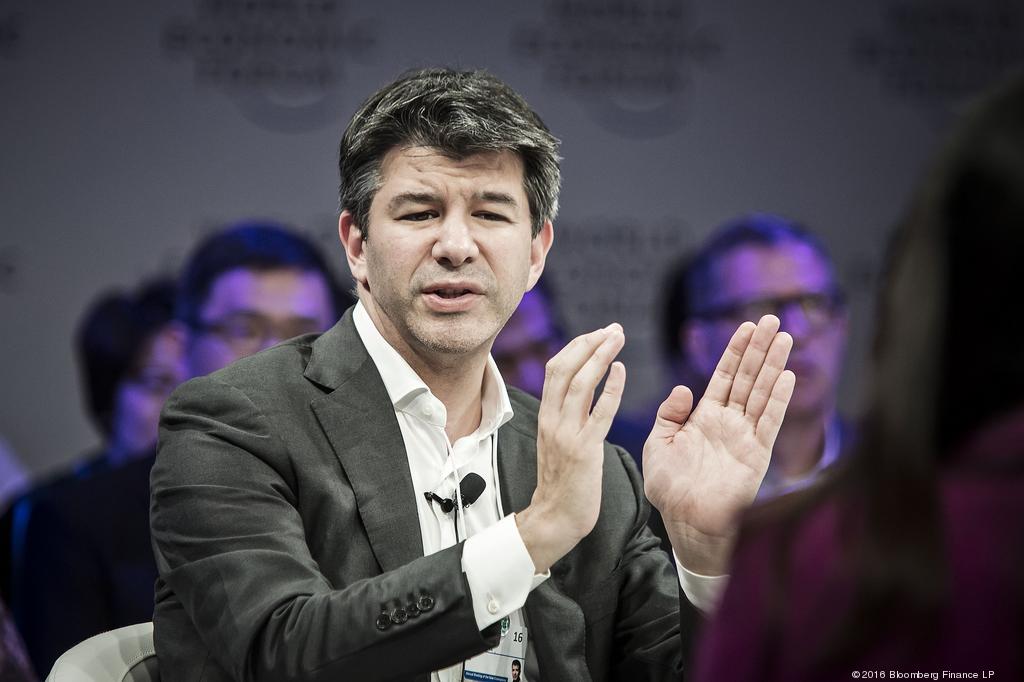Article originally published in the American City Business Journals on June 27, 2017
The inevitable finally occurred. On June 21, The New York Times reported that two partners from the venture capital firm and investor Benchmark met with Uber CEO Travis Kalanick and presented him a letter from five major investors demanding that he resign from his position.
After consulting with board member Ariana Huffington, Kalanick stepped down as CEO of Uber.
It was the job of the Uber board to protect the interests of the company’s investors. It didn’t, so Uber’s investors stepped in to protect their own interests.
Kalanick was certainly a visionary. He transformed the taxi-cab/ride-hailing transportation business by challenging paradigms through the use of information technology and hiring individuals who use their own vehicles to transport people who traditionally used taxis.
However, an entrepreneur with a great idea and the drive to start a new business is not necessarily the individual with the skills, values and temperament to run and grow the company over the long term.
Kalanick had been under criticism for his poor tone at the top and fraternity-like culture that ignored sexual harassment complaints from female employees, causing many to leave the company.
His drive to win at nearly all costs by pushing ethical and legal boundaries to the limit created scandals, damaging the company’s reputation and adversely affecting its market share.
In February, the board hired former attorney general Eric Holder and his law firm to investigate and make recommendations on how to fix the culture within Uber.
Holder’s report was made public in early June, and all the recommendations were adopted by the board. After the report was issued, questions were raised if Kalanick was the right CEO to oversee the cultural changes that were needed within private company Uber.
The culture within Uber is certainly not one that would be tolerated by public company investors. Any ethical misstep by the CEO or hint of a scandal has an immediate adverse impact on the company’s stock price.
It is rare for a CEO who is so identified with that tone and culture to successfully implement change, so it was only a matter of time before it became apparent that Kalanick had to go.
This year, many senior executives have left Uber, doing so for various reasons. Some of these positions are currently unfilled, including that of CFO. It will be difficult to fill these positions until a new CEO is named.
A Wall Street Journal article dated June 23 is headlined, “Leaderless Uber scrambles to prevent employee exodus.” It is an exodus that Uber can ill afford.
With no one currently at the helm, the company is being operated by a group of 14 senior managers. Every organization needs a leader, even if interim. The board will need to name an interim CEO until a search can be conducted and a CEO named.
Many Uber employees are very loyal to Kalanick. On June 22, the L.A. Times shared a petition obtained by the news site Axios signed by Uber employees urging the board to reinstate Kalanick “in an operational role.”
That would be a mistake. It would undermine the new CEO.
Kalanick remains as a director on the board of Uber. This is not a wise decision. In his departing note to employees, Kalanick wrote, “[I] will be available in any and all ways to help Uber become everything we’ve dreamed it would be.”
Someone with such a large footprint within the company will still have influence over its employees and make it difficult for the new CEO to change the culture. In fact, it makes it more difficult to hire the right new CEO if Kalanick is still around. For the good of the company, Kalanick needs to make a clean break and leave the board.
On June 21, Yahoo Finance reported that former eBay and PayPal executive Stephanie Tilenius commented, “Travis’s management style and poor choices are now a case study for every start-up that sexual harassment and bad ethics will never be tolerated, regardless of how successful or fast a company grows.”
Trip.com CEO Travis Katz, in the same story, commented, “There has always been a sense that in Silicon Valley, growth is the only thing that matters. Kalanick’s resignation sends a message that we have entered a new era, where growth, without a fundamental sense of decency, is simply not good enough.”
A fundamental sense of decency is always required for the long-term success of any enterprise. Not only is it the right thing to do, but the public demands it.
A lesson for all boards: If the CEO isn’t cutting it regarding tone, ethics and culture, make a change before change is forced on you, and avoid the fallout that Uber is now undergoing.
Stan Silverman is founder and CEO of Silverman Leadership. He is a speaker, advisor and nationally syndicated writer on leadership, entrepreneurship and corporate governance. Silverman earned a Bachelor of Science degree in chemical engineering and an MBA degree from Drexel University. He is also an alumnus of the Advanced Management Program at the Harvard Business School. He can be reached at Stan@SilvermanLeadership.com.


Good summary Stan. The story also shows the downside of having “names” on the Board that cannot, or don’t want to, spend enough time with the Company. Any good Director/Board would have taken action years ago.
Thanks, Alan.